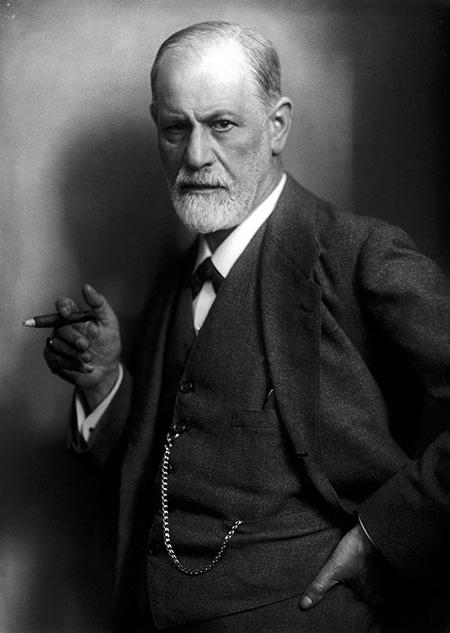INTRODUCTION
1.4
Historiographic Methods
Which approaches are available to historians of psychology? Learn about some of these by reading the article by Laura Ball http://doi.org/10.1037/a0023247. (Core reading)
Before learning more about specific events and figures that are important in the history of psychology, it may be helpful to reflect on the methods available to describe and understand the history of science and its specific disciplines, such as psychology.
Is the history of psychology best studied by identifying and studying a few charismatic characters, so-called “geniuses” or “great men”, like Sigmund Freud? What alternatives are there for the history of science and psychology?
Laura Bell introduces five alternatives available to historians of psychology that put less emphasis on single individuals and, instead, privilege descriptions and explanations based on social factors and cultural context.

Sigmund Freud in 1921, one of the most prominent “great men” in psychology, recognized by students and non-students of psychology alike.
(Public domain)
References
Ball, L. C. (2012). Genius without the “Great Man”: New possibilities for the historian of psychology. History of Psychology 15 (1), 72–83. http://doi.org/10.1037/a0023247
Please note that certain links to journal articles are only available within the eduroam network if they concern publications for which the university has a campus license. If you are a member of the University of Basel and want to access university resources from home, you will need to install a VPN client.
Lizenz
University of Basel
